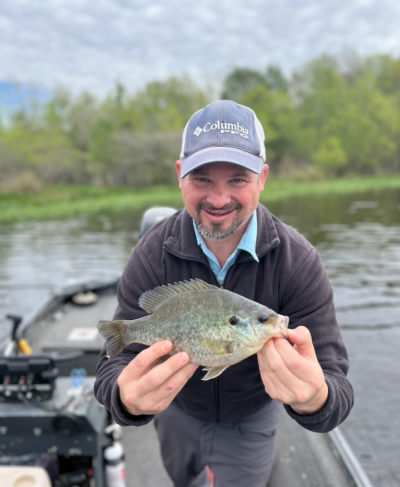Keith Lusher 03.22.24
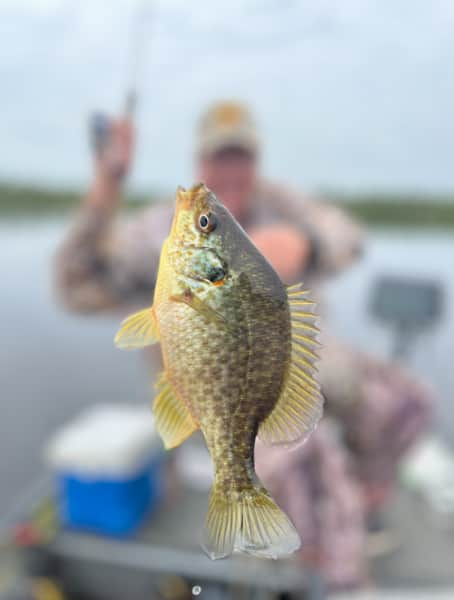
There’s something to be said for heading down to the lake and catching bream on a simple bobber and worm. In the past decades, fishing has become so technological and precise that I find it to be a nice change of pace to get back to basics. Get back to how the majority of us learned how to fish.
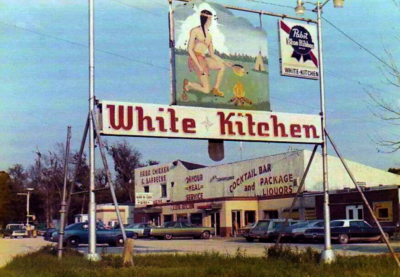
I made a trip to a very unique section of Southeast Louisiana, to a place named White Kitchen located 7 miles south of Slidell, LA. The history behind the name of this area stems back to the 1940s when a very popular restaurant named White Kitchen was operating. The restaurant was so popular that after it was gone the, area inherited the name “White Kitchen” which was then adopted by the state as a Nature Preserve. It’s said that this restaurant was the last place Jane Mansfield stopped before dying in a car accident on her way from Mississippi to New Orleans.
Since I know you didn’t come here for a history lesson I’ll digress.
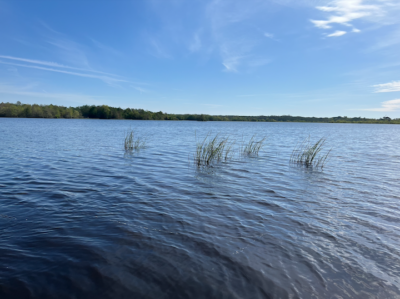
We started our day at 8:00 a.m. I was fishing with a gentleman named Ray Miller. Miller is a master sac-a-lait fisherman and knows his way around a few bream beds as well. He launched his 18-foot flatboat in the lake and off we went at a whopping 4 MPH. A little side note about White Kitchen, it was formed after Hurricane Katrina flooded the entire low-lying swampy preserve. What water stayed formed a large lake which to the naked eye looks like it may be deep, however, its average depth is only 5 feet.
As we arrived at our first spot. We both put a piece of Nightcrawler on our #6 cricket hooks and whipped out our lines. Typically the bream spawn kicks off right around this time of year but a cold front had just passed through two days earlier dropping the air temperatures down to 40 degrees overnight. Miller looked down at his Livescope and called out the water temperature, “58 degrees. C’mon sun,” he said. It was clear that after a half hour of fishing with no bites, the bream had lockjaw due to the water temperatures dropping. So we decided to wait them out.
Miller used his trolling motor to round the lake and it wasn’t until 11:00 a.m. when the action picked up. Miller has a theory when fishing White Kitchen, “When it gets warm enough and those gators start bellowing – that’s when the fishing is good,” he said.
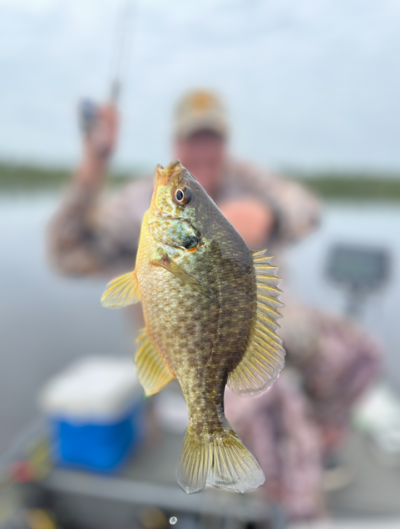
After we put our fourth bream in the boat. Miller said, “Listen…you hear that?” It was two gators calling out to each other back in forth in a sing-song pattern. As the water temperature warmed up to 62 degrees the fishing got even better and we continued to build a decent box of bream. One thing about a box of bream that comes from White Kitchen is it’s primarily Shellcrakers (Chinquapin) that occupy it. Shellcrackers are the thickest of all the bream species making them highly sought out among the locals. These fish tend to fill up an ice chest quickly because of their broad shoulders and stomachs so we decided to give the trip five more minutes before calling it a day.
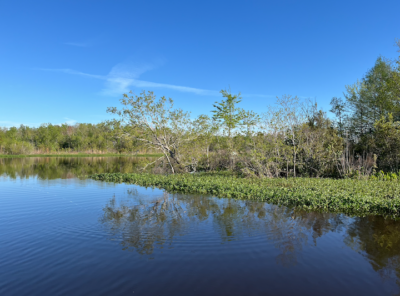
Our last spot was along the shoreline. A mat of Hyacinth stretched out about five feet and I made a cast to the edge of it. My bobber turned sideways and began to move across the water so I set the hook. My drag started to make noise whcih had never happened all day so I knew this wasn’t a normal bream. I played the fish for about 15 seconds and started reeling it thinking that it was a bass by how hard it was pulling. As the fish neared the boat it surfaced and I realized that is wasn’t a bass, but a huge shellcraker! I quickly slung the fish into the boat and held up the 11-inch fish. It was a personal best for me as I never caught a bream so large. The “personal best” was the icing on the cake to my first trip to White Kitchen. Hopefully, I’ll be able to add to the history of this Hurricane-made Lake next year!
